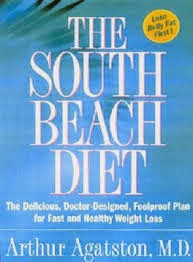(no I am not recommending this for breakfast – read on! 🙂 )
Many health care professionals recommend a good breakfast as part of a weight management plan. It sets us up with energy for the day, and can prevent a hungry drive-by carb load at Starbucks or Tim Hortons mid morning. However, there is a lot of controversy on this topic. What is the truth about skipping breakfast – is it a bad idea or a good idea?
Observational studies show that people with obesity are more likely to skip breakfast than people without obesity. In the American National Weight Control Registry, consisting of people who have lost 30lb and kept it off for a least a year, 78% eat breakfast every day.
A recent systematic review and meta-analysis of randomized controlled trials on this topic found that people who skipped breakfast ate 259 calories less per day than those assigned breakfast, and weighed about 1 pound (0.44kg) less than those who ate breakfast. However, the 13 studies included in the analysis were very short, with a mean of only two weeks of comparing breakfast vs no breakfast (the shortest study was less than one day!), and follow up being only a mean of 7 weeks. Hardly anything to hang our hats on in the context of obesity being a life long medical condition. Also, breakfasts most often consisted of foods we would not recommend as a healthy or satiating breakfast – juice and cereal and/or white bread.
A recent study also looked at the effects of providing breakfast in the classroom to 1300 school aged children in the US. After 2.5 years, there was a higher incidence and prevalence of obesity compared to kids who were offered breakfast before school in the cafeteria. Again, breakfast consisted of cereal and muffins – low in protein and nutritional value.
The choice of food at breakfast will likely impact whether or not eating breakfast is good for weight management. As discussed in a recent review, eating at least 30 grams of protein, at least 350 calories, and a solid (not liquid) meal, increases the appetite and satiety (fullness) response compared with skipping breakfast.
Further, as blogged previously, the human hormonal rhythm and metabolism are geared towards eating earlier in the day, and thus eating most of our calories in the earlier part of our day appears to be better for our metabolic health.
BOTTOM LINE: There is no particular rhythm of eating that works for everyone, and each of us are genetically programmed in a unique way. If skipping breakfast means skipping the cereal bowl pictured above – probably a good idea. However, choosing a breakfast composed of healthy, protein rich, satiating choices (like the photo below) is likely favorable. But if force feeding yourself a breakfast that results in you eating more in the day than you otherwise would have – this will not be of benefit in weight management.
Dr Sue Pedersen www.drsue.ca © 2019
Follow me on Twitter! @drsuepedersen













